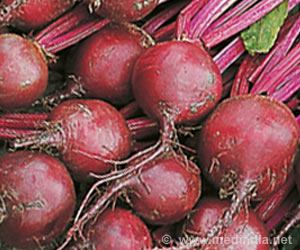
Senior co-author Daniel Kim-Shapiro, professor of physics at Wake Forest said, “The next steps in the research include examining whether all red blood cells have this activation function and whether this function is diminished in red cell diseases like sickle cell disease, other blood diseases, or in the transfusion of older blood. Does this important function that we can now attribute to the hemoglobin in the red cells get compromised under certain conditions? And if so, how can we enhance it?"
The study is published in Journal of Biological Chemistry.
Previous studies by Kim-Shapiro and his team have shown that nitrite can be converted to nitric oxide (NO), and thereby increase blood flow. However, they then hypothesized that the conversion of nitrite to NO was due to a reaction with deoxygenated hemoglobin in red blood cells. He has conducted studies that look at how nitrite and its biological precursor, nitrate can be utilized in treatments for a variety of conditions; and was the first to find a link between consumption of nitrate-rich beetroot juice and increased blood flow to the brain.
Source-Medindia















